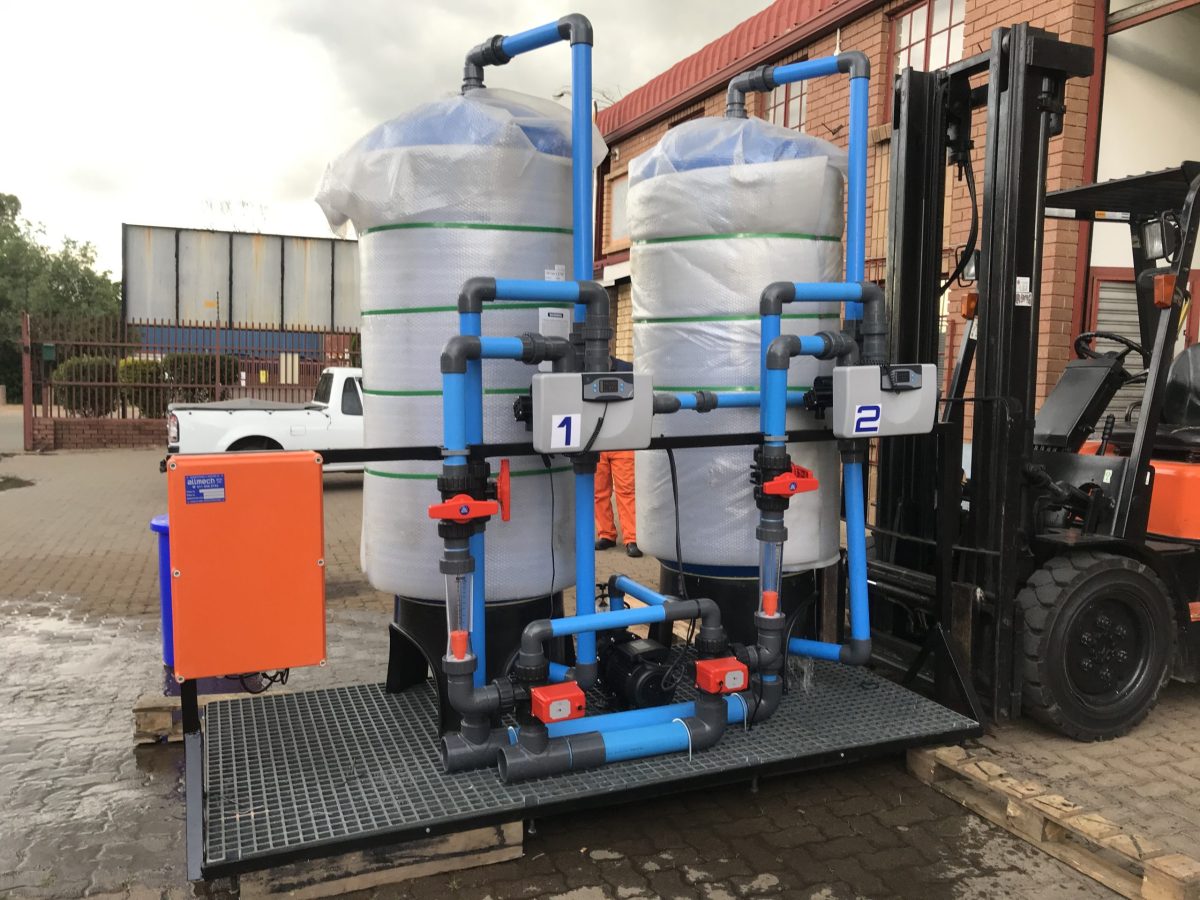
Filtration is used in almost all industrial applications and is integral to many processes. Anelia Hough, water treatment consultant at Allmech, explains that it’s an important step used in production processes for everything from automotive products to food and beverage, pharmaceutical, chemical and coatings, building services, water treatment, oil and gas, nuclear and contained systems. Particulate matter is removed from the contaminated water to produce water that is safe and clean for a specific application.
There are different types of filtration, depending on the application. “Typical fine filtration refers to various water treatment processes, such as sand filtration, bag filtration, cartridge filtration, direct up flow filtration, etc,” she says. “When we talk about water filtration technology, we’re referring to the practical processes used to produce a specific quality of water required from raw water. Each of the processes performs a specific task and is selected based on the raw water characteristics, as well as the end user’s final water quality and quantity requirement.”
While coarse filtration aims to remove coarse suspended solids that could deposit on process equipment creating scale and corrosion, fine filtration separates solid matter and fluid from a mixture with a filter medium like sand or carbon, and membrane filtration aims to remove bacteria, microorganisms, particulates, and natural organic material.
“When choosing a water filtration system, it’s important to keep in mind the potential benefits, advantages and disadvantages for each option,” says Hough. “While many customers consider upgrading existing filtration systems or adding new water treatment systems an unnecessary expense, the hidden costs created by contaminants are significant, while the cost to filter and remove them is modest and can be recovered relatively quickly.”
She says that when evaluating filtration options, it’s important to keep in mind the cost of installation and operation, the energy cost to operate the system, ease of use, monthly maintenance cost, any labour and downtime costs for filter, cartridge and membrane replacement, as well as environmental considerations. This includes minimising waste, as well as waste disposal costs.
“At Allmech, we’d generally complete a site visit to understand the client’s site-specific requirement and needs. Then we need a comprehensive water analysis or water testing report (to be completed by approved laboratory) analysing raw water parameters against final product water requirements, so we understand exactly what’s needed and what we’re working with. We flag any raw water characteristics that are above recommended or required levels before we get into treatment selection.”
When selecting a water filtration system, Allmech says it’s critical to keep in mind the client’s processes, recommending options that can minimise process downtime, reduce or eliminate waste disposal costs, reduce maintenance time and expense, and improve product quality. “It’s important to review all the available filtration options and identify potential areas where adding or upgrading filtration can provide cost savings,” says Hough. “On top of that, Allmech can help with monthly water treatment analysis, monthly water treatment services, maintenance and repair.”
Allmech offers industrial water treatment programmes and services focused on prevention of scaling and corrosion of boilers and cooling towers, as well as strainers, side stream filtration for cooling towers, chemical precipitation solutions, ion exchange for water softening, ion exchange for nitrate removal, demineralisation plants, fine filtration for pre and/or post filtration of raw water, membrane filtration (such as ultra filtration and reverse osmosis), and water recycling systems.
The company is also the sole agent for Runxin water treatment system valves in the South Africa. “We supply a full range of manual and automatic filter and softener valves. We work with Runxin because their valves are reliable, easily available, user-friendly and cost effective, and they’ve proven to be more chemical resistant and robust than other brands on the market,” says Hough. “Allmech is also fully equipped to test, service and repair these valves locally.”
More news
- MBA: ‘HOW CONSTRUCTION FIRMS SHOULD PREPARE FOR THE WORST’
- PART 2: SA’S TRADE DILEMMA: A PODCAST DISCUSSION WITH DONALD MACKAY
- CONCRETE MASTERY TRANSFORMS WATERFALL CITY SKYLINE WITH DHL SERVICE CENTRE
- PART 1: SA’S TRADE DILEMMA: A PODCAST DISCUSSION WITH DONALD MACKAY
- WCA MAY 2024 GLOBAL CONFERENCE HOSTED IN NANJING, CHINA

